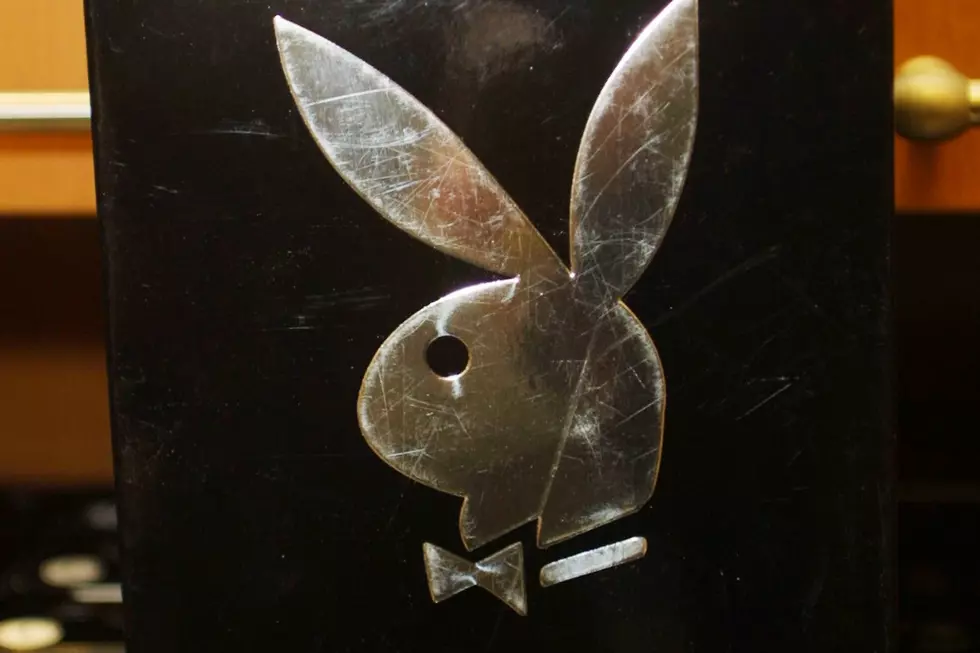
Living the Dream. Father, Son Cherish Memories of Yankees and Baseball.
Young kids love tossing around a baseball in the backyard with their dad. Chris Phillips lived that dream, and shared many memories with his dad, Steve, a former outfielder in the New York Yankees farm system.
Their earliest memory together was when Chris was a child, and Steve was playing his last year of independent baseball. Steve, and his wife were at a Yankees game, and Jorge Posada and Derek Jeter both held Chris.
As Chris got older, and when he was seven-years old, his dad took him to the 2003 World Series.
"One that stands out that year was when we got to go together to the Florida Marlins and Yankees World Series, and that was spectacular! I was young, and seven. I don't remember much of the details, but I do remember it was intense and I have never been in a baseball atmosphere with so much intensity in the stadium," tells Chris.
Steve recalls more of the details, and won't forget the night at the World Series he was able to spend with his son.
"My wife had gone to the NLCS against the San Francisco Giants with Barry Bonds, and was like, 'Why don't you take Christopher?' He was seven-years old, and we were eleven rows up from the dugout. We were watching Roger Clemens pitch with Posada, Rivera, Jeter, and all those guys. For the Marlins, we say Willis, Miguel Cabrera, Jeff Conine, Josh Beckett, and A.J. Burnett. I mean there were some stars out there. From our standpoint, I was able to take him into the clubhouse, and be around those guys, too, because they knew me. I had coached some of them. To be able to say I took my seven-year old to not only the World Series, but sit eleven rows back watching Clemens pitch against our Marlins and then go to the dugout and snack around those guys I had worked with, was pretty awesome. To me it doesn't get much better than that unless I was playing. "
Growing up, Phillips was able to make many cool memories with son, Chris. Memories that young kids often dream of.
Early on in his career, Steve was 23-years old when he first met Jeter, a five-time World Series champion and 13-time All-Star, in his rookie season in Greensboro. Posada was Steve's roommate for two seasons, and Rivera was a teammate during instructional league.
Sharing the same baseball diamond was truly an honor for Phillips in the Yankees system.
"A prestigious organization that does things a certain way was great for me, pride-wise, and history-wise, even if it is in the minor leagues. Playing wise, it was a tough situation because everyone they brought in from an outfielder standpoint, we all looked the same – 6'2”, 205 or 210 pounds, and big, strong athletes. They rolled some balls out there and saw who came out. Unfortunately I had some injuries that kept me from progressing.”
Steve played independent baseball from 1991 to 1997, and four years in the Yankees farm system. After his baseball career was cut short by injuries, he became the hitting coach for the Montreal Expos Class A and AA affiliate. Then, as he worked his way up in the coaching ranks, he managed the Florida Marlins Class A affiliate from 1999 to 2004. In a step higher, he began a tenure as the Marlins hitting coach for their Class AAA affiliate in 2006 for two years.
While coaching, Steve had the privilege to teach many big time stars that went on to play in the Major Leagues. He has coached Brandon Phillips, Dontrelle Willis, Josh Johnson, Milton Bradley, Jamey Carroll, Grady Sizemore, Jason Bay, and many more. Two of his favorites were Sizemore, and Bay because he loved seeing athletes at the highest level respect the game and listen to what others have to say.
"Sizemore had just came out of high school, had a full-ride to play football at Washington I believe. Their wasn't any better as far as him, and how polite, how good of listener he was and how hard he worked. I had him for two years, and the following year in King County, outside of Chicago when I was a manager. He (Sizemore) played with Bay the second year. Bay won the batting title in the league and Sizemore, I think he hit .270, and was a very good top of the order guy because he could steal bases and play great in centerfield."
Two years later in 2008, Phillips decided to come home, and spend time with his family. An opportunity at the Sanford Baseball Academy in Sioux Falls helped him make his decision a lot easier.
"I didn't really have anything else I was excited about doing when I was looking to quit coaching professionally because that's what I loved to do. To have this opportuinty to stay here and train guys with hitting lessons, and then also, coaching some youth teams, it made the decision and transition easy because I was home. Prior to that, it was very tough because I would leave the first week in March for Spring training and come home the first week in September. I would see my family for three or four times all spring, and summer."
Not only has Steve had the opportunity help train young ballplayers, but he helps coach his son's traveling baseball team, the Sioux Falls Cyclones. Chris has been extremely grateful for his dad in his life.
"It was very important to keep me straight and now, that he's here full-time, I know I can go to him anytime I want to for lessons and to work on my craft."
While growing up and watching games with his father, Chris was able to see firsthand the ups and downs of the path it takes to play at the game's highest level.
"Definitely early on when I was around baseball, as much as I was, I feel like the little things and mental parts of baseball, I benefited from. When I came back and was put it in game situations, I always feel like I had that mental edge. Even in basketball, seeing what professional athletes do to prepare before games, it helped give me that edge.”
Chris is a senior at Roosevelt in Sioux Falls, and is in the midst of his basketball season right now. He will play baseball later in the spring for the Riders, and again later with his dad for the Sioux Falls Cyclones in the summer. He hopes to play Division I baseball, but doesn't know where yet. His dad thinks Chris has prepared himself well for his future, but knows challenges lie ahead with a shoulder injury that has bothered Chris during baseball career.
"He's not a person that panics, in my eyes. When you are going through the ups and downs, he knows that there is going to be times when things aren't going well. He's seen guys go through slumps, tough times, and bad stretches. I think he's benefited from seeing kids, players at those higher levels. He's been around big league players in minor league camps; guys he saw that were so-so players, and great talents, but so-so finished products get to the big leagues. For him to know them prior to becoming big league stars, it brings back to reality that they are just people. More so for him, than other guys who might be starstruck or in awe when they see those guys or don't understand the same process I went through. They happened to be more injury-free or more talented or had more opportunities to make it work for them. But I think that was a good thing for him going forward if that's something to pursue, he's not going to be in a situation where overwhelmed by the task of what type of preparation and training needs to be done."
Having a dad that played professional baseball is beneficial for most, but it may be difficult as well. As a former ballplayer, himself, Steve realizes that he cannot make Chris become a professional athlete, and as result, there has to be balance between a father and son's relationship. Steve is reminded of a story of a father's expectations for his child.
"It's a picture of two young kids, both six years old. One is standing on first base, and the other kid asked, is that your dad in the stands? The kid on first base says, Yeah, he thinks I'm going pro next year."
Steve thinks it's tougher for Chris, because as a former ballplayer, he knows the path it takes. Steve played at the highest levels in sports. In fact, while he was in college, he played Division I baseball and football.
"I know the road it takes, some of the obstacles out there for so many players. Really what it boils down to that just because I've done it, it doesn't mean he is going to be able to do it. Obviously, it takes some talent, and he's athletic and has talent. It takes for him to want it himself. If I want it for him, then we both will end up disappointed because I will want it more than him. So, that's something for him to decide. As a parent, we see this a lot, pushing, wanting, asking questions, trying to figure out if their son or daughter can be better, and then they don't want it as much as the parent wants it. It could be because they are so young, or have got to the point where they don't desire or love that sport or maybe they will end loving football, basketball, soccer or a musical instrument or just want to go to school. As a parent, No. 1, we need to let the kids play. To me, let them figure it on their own, and we can't push them to want what we want without them wanting it themselves."
If young kids want to become professional athletes, know that the road traveled is not easy, but it may be accomplished.
"I would never tell a kid that they can never achieve that as a goal. I would say to be prepared for a lot of ups and downs. It's not all an uphill battle, or a downhill battle, good or bad, but if that's what you truly want, then prepare to do a lot of work to improve your craft, and it also takes some luck. Whether that luck means staying healthy or are healthy at the right time, there is always luck involved to become that highest level player. I would never kill someone's dream. They have to figure that out on their own and hopefully they notice that before you say you can't do this because that's killing someone's dream," adds Steve.
**Feel free to comment below or email Sam at tastadsam@gmail.com. Sam is also on Twitter @samtastad**



